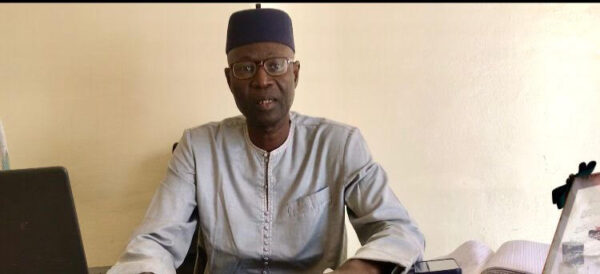By Pr Amath Ndiaye – Economist, FASEG-UCAD
France has neither oil, nor gas, nor gold, nor uranium, nor lithium, nor cocoa, nor iron. Yet, it guarantees the CFA franc. This apparent paradox raises questions: how can a country without natural resources support the currency of African countries that are rich in them? The answer lies not in mines, but in trust and economic solidity.
GOLD NO LONGER BACKS CURRENCIES SINCE 1971
Until 1971, the Bretton Woods system linked the value of currencies to the US dollar, which was itself convertible into gold. But since President Richard Nixon’s decision to end the convertibility of the dollar into gold, no currency in the world is backed by a precious metal.
Gold has ceased to be the foundation of monetary value. Since then, the stability of a currency relies solely on trust – the trust that the national and international community places in the economy that issues it.
THE VALUE OF A CURRENCY DEPENDS ON TRUST
The strength of a currency does not stem from the natural resources of the country, but from the trust inspired by its economy. This trust is based on several essential factors: the size of the economy and its weight in global trade, its productive diversification, its political and institutional stability, and its economic performance (growth, inflation, debt, employment).
This is why countries like France, Switzerland, or Japan, despite being poorly endowed with raw materials, have powerful currencies. Their secret: productive, innovative, and credible economies. Conversely, many African countries, although abundantly endowed with natural resources, remain dependent on raw exports and therefore vulnerable to external shocks.
WHAT THE “FRENCH GUARANTEE” REALLY MEANS
The famous French guarantee of the CFA franc is often misunderstood. It does not consist of political control or gold coverage. It simply allows the BCEAO to obtain exceptional financing from the French Treasury in case of a temporary shortage of foreign currencies.
In other words, it is a safety net, a last resort credit line. This guarantee costs nothing to African countries and allows France to contribute to the monetary stability of a region where it holds significant economic and commercial interests.
But it must be emphasized: this guarantee is no longer essential. The BCEAO now manages the CFA franc rigorously, has comfortable foreign exchange reserves, and implements a prudent monetary policy recognized for its credibility.
THE STAKE: PRODUCTIVE ECONOMIES, NOT RENT-BASED ECONOMIES
The real challenge for Africa is not to break for the sake of breaking, but to build economies capable of inspiring trust. Political speeches and mining deposits do not determine the value of a currency, but the ability to produce, transform, and export with added value.
It is a productive, diversified, and competitive economy that will give Africa stable currencies – not outward-looking economies dependent on raw materials.
Africans must stop fantasizing about their natural resources: those who benefit most from them are the countries that transform them, namely industrialized nations, not exporters of raw materials.
Monetary sovereignty will not come from mines, but from factories, productivity, and collective trust in African economic institutions.
IN CONCLUSION
Since 1971, gold is no longer the foundation of currencies. The value of a currency depends on trust, based on the size, performance, and credibility of the economy. The French guarantee is only exceptional and free support in case of a currency crisis. The monetary future of Africa will be built through industrialization, diversification, and the creation of local value, not solely by possessing natural resources.


